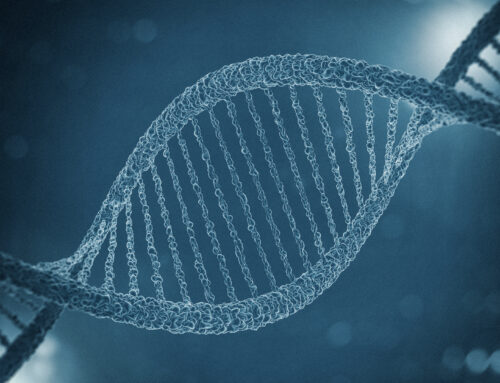.png)
In 1995, the BRCA genetic test for predisposition to breast and ovarian cancer was among the first cancer genetic test to become available for clinical use. More than 25 years after the discovery of the BRCA1 gene, research continues to identify thousands of BRCA1 and BRCA2 mutations linked to increased breast cancer risk. As more precise testing options become available, we delve into the new advances in genetic testing for breast cancer.
How has BRCA testing evolved since it was first introduced?
The demand for BRCA testing has steadily increased since researchers learned that individuals carrying pathogenic BRCA1 or BRCA2 mutations have elevated lifetime ovarian and breast cancer risk. BRCA testing conducted in 1995 was nowhere near as comprehensive as it is now. Our ability to read DNA has grown tremendously in the last few decades. In the past, BRCA tests used genotyping, a technology that examines specific locations of our DNA and compares it to reference DNA to identify differences or mutations that, at the time, were commonly known to increase an individual’s risk for cancer. Today laboratories are adopting next-generation sequencing technology, which can sequence BRCA1 and BRCA2 genes almost entirely. Think of genotyping as reading a few words on each page while sequencing allows you to read the entire chapter in a book. With next-generation sequencing, doctors will be able to analyze your genetic data as we continue to discover new BRCA mutations.
What is the difference between BRCA testing offered by tests like 23andMe and those offered by a doctor?
Direct-to-consumer (DTC) tests, like 23andMe, are genetic tests a person can purchase over the counter or through the internet. On the other hand, a healthcare provider must order a clinical genetic test on behalf of their patient. In 2018, 23andMe received FDA approval to identify three variants in the BRCA1 and BRCA2 genes, also known as the ‘founder mutations’ because they are more commonly found among individuals with Ashkenazi Jewish ancestry. DTC tests do not take a patient’s family health history into account to determine whether more comprehensive genetic testing is necessary. There are more than 1,000 variants in the BRCA1 and BRCA2 genes known to increase cancer risk. Geneticists found that 23andMe’s genetic test could miss nearly 90 percent of participants who carried a different BRCA mutation than these three, though they currently offer more BRCA1/2 variants. DTC companies also use simpler, more cost-effective technology compared to a clinic test ordered by a genetic counselor or healthcare provider. Patients who come to their doctor with DTC results must confirm their findings with a clinical test.
Beyond BRCA, are there other cancer mutations that are more common among people with Jewish ancestry?
Yes, there are other breast cancer mutations on other genes found more commonly in individuals of Jewish ancestry though they are not as common as the founder mutations. Just last month, researchers at the Basser Center for BRCA found that a mutation on the TP53 gene was expressed most commonly in the Ashkenazi Jewish population. Another pathogenic mutation on the CHEK2 gene was previously identified as an Ashkenazi Jewish founder mutation that may increase breast cancer risk. Other genes with mutations found more commonly in people of Jewish ancestry compared to the general population include BRIP1 and PALB2. However, it’s important to note that less than 4% of Ashkenazi women who test negative for the three BRCA founder mutations still carry pathogenic mutations on other genes
As scientific technologies develop more comprehensive genetic testing, talk to your healthcare provider to see whether new genetic tests can provide a deeper insight into your genetic health. The Norton & Elaine Sarnoff Center for Jewish Genetics offers a wealth of resources for persons who want to learn more about their risk and options for testing, prevention, and early detection. These resources include information on our website, JewishGenetics.org, and community access to a genetic counselor who is available to provide education, answer questions, and direct individuals to appropriate clinical resources.


